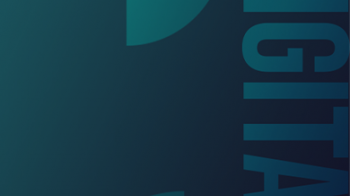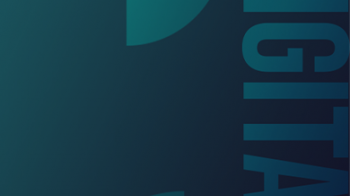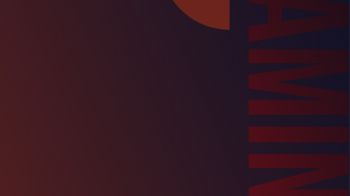BBC Global News: Digital Upfronts 2020
IAB UK
Only got five minutes? Here's a round up of BBC Global New's Digital Upfront, covering everything from trust in journalism to the accelerating trends of 2020
With 2020 having hit the reset button on all areas of our lives, this year saw BBC Global News switch the opulent surroundings of the Radio Theatre for a virtual, but equally captivating Digital Upfront. Host Lori Suchcicki introduced the event saying that brands would come away with a greater understanding of how to make the most of the opportunities thrown up by the changes 2020 has brought about.
Let’s take a look at some of the key takeouts:
Trust matters
The pandemic has created a huge appetite for trusted news and known brands - something that the BBC has witnessed first-hand with page views topping 1.5 billion on coronavirus related stories and the popularity of feature pieces also surging as people look to take a break from the news cycle. Why are people turning to the BBC? It comes down to the history of the institution and the reputation it has for being trusted and impartial, explained Director of News & Current Affairs Fran Unsworth. The fact that this audience has stuck beyond the initial surge presents, in tandem with high impact content, a big opportunity for brands looking to work with the global commercial arm of the BBC.
Hone in on emotional values
When it comes to advertising, brands should be focusing on forging emotional and authentic connections with their audiences. The CEO of Neuro-Insight UK, Shazia Ginai, explained that brands need to look at the wider context of uncertainty and understand their position as a creator of memories for consumers - shifting to a more emotional and value-driven model. Consider all the contact you have with consumers as an opportunity to build memories for them and put authenticity at the core of everything, she said.
In a similar vein, Founder of The Barber Shop Dino Myers-Lamptey said that the pandemic has forced people and businesses to digitally transform faster than they ever have in history, but this has come hand in hand with brands moving away from a focus on explicitly driving sales. Rather than using ads for “hard, rational messages”, there has been a shift to emotive advertising that creatively connects with consumers. His number one advice to futureproof for the next 5 years? “Really define your purpose.”
Diversity = competitive advantage
Discussions about diversity aren’t new, but 2020 has seen a greater emphasis placed on change. This was one of the key themes of the event, with Unsworth saying that actively supporting diversity isn't only the morally right thing to do, it’s also the smart thing to do. Speaking to June Sarpong, BBC Global News’ Director of Creative Diversity, Unsworth said: “The more diverse we are, the more we will be able to appeal to people all over the world… it’s why we also want to work with partners that will put [diversity] at the heart of their strategies.”
Similarly, Myers-Lamptey said that “diversity is competitive advantage… it’s about having a culture and a company that permits people to be themselves and bring their full self to work - and that means creativity”. For brands, he advised that “difference does breed success” and that businesses need to respect the fact that they are part of a circle of responsibility when it comes to supporting diversity.
Trends are accelerating
From media to politics, trends are changing and accelerating due to the pandemic. As BBC News’ Dharshini David, Senior Correspondent of Global Trade & Economics, put it: “Keep an eye on the trends. The future isn’t anything like the past.” How can advertisers and brands make the most of this? Anita Balchandani, Partner at McKinsey & Company, said that “the winners are those that are listening and responding at pace, in order to remain relevant”.
When it comes to Whitehall, the BBC’s Political Editor Laura Kuenssberg explained that the COVID-19 crisis has “accelerated trends that were already there and exposed and revealed fault lines” - both politically and economically. So will politics remain on hyperspeed for the foreseeable? In regards to Brexit, Europe Editor Katya Adler thinks that there is evidence of a wider shift in Europe, with talk of “Frexit, Dexit and Italexit” no longer in play.
On the other side of the Atlantic, things are also changing. With COVID and the US Presidential Election combining to make for an extraordinary year, North America Editor Jon Sopel talked of how the USA’s relationship with China is now at its worst since the resumption of diplomatic relations. However, his view is that if Trump wins a second term, the President will want to improve dialogue with China.
What’s next?
Sticking with the political focus, Kuenssberg said that the jury is still out on whether a Brexit deal is reached, with Adler believing that it will be because the EU won’t walk away without one. In terms of the COVID-induced reset to our lives, Kuenssberg said that “it’s far too early to be able to judge what will stay and what will go”, citing the current work-from-home norm as a situation that works well for some but not for all.
Taking a longer-term look into the future, Futurist Amy Webb started her talk by explaining the role of a futurist: “They don’t make predictions, they make connections to reduce uncertainty so that leaders like you can make smarter decisions.” While many people are referring to the pandemic as a “black swan event” that no one could see coming, Webb rejects this, saying that “we didn’t take action on our futures”. So how can we accurately gauge the future?
Data is key to understanding what’s next and “you need to get good at being creative”, says Webb - you won’t get all your information from one place. She also said that data hygiene and data governance will be central, as the most effective campaigns going forward will be tailored to individual people. It’s now for us as an industry to think through the future of collecting data, using data and storing data. To think like a futurist, Webb urged viewers to reset themselves, be willing to confront deep uncertainty with deep questions and always be willing to take action.
Closing the event, Lori Suchcicki summed up the discussions of the day perfectly: “When significant change happens, when the rest button gets hit, things get tough but opportunities arise. And taking advantage of those opportunities relies on understanding what the consumer expects… together, we need to ensure that we’re authentic in what we stand for.”
You can watch BBC Global News’ Digital Upfront here, as well as extended versions of the individual sessions.
Related content
Digital Upfronts brings together top names for two weeks of virtual events
Learn moreStar talent announced for Digital Upfronts 2020
Learn moreGaming Upfronts 2020: Six things we learnt
Learn morePodcast Upfronts 2020: Six things we learnt
Learn more
Fast forward to 2030 with Futurescape
An in-depth exploration of the attitudes, innovations and media shifts that will shape the years ahead and redefine how we advertise by the turn of the decade



